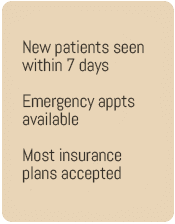Raising Awareness: HHT Disease
Hereditary Hemorrhagic Telangiectasia (HHT) is a genetic disorder affecting blood cells. It causes abnormal blood vessels to form and can affect multiple organs in different ways. Also known as Osler-Weber-Rendu Disease (OWRD), named after the doctors in the late 1800s who studied the disorder, HHT disease affects both men and women, adults and children, from all ethnicities. More than 1.4 million people are affected by the blood disorder worldwide. Yet, HHT is often misunderstood by doctors and the public and is vastly misdiagnosed.
Symptoms of HHT disease
Though in most cases HHT is not life-threatening, it can cause multiple symptoms for those with the disorder, such as
- Bleeding in the GI tract, brain, lungs and liver
- Anemia
- Increased risk of stroke
- Nosebleeds
- Migraines
- Seizures
- Back pain, swelling or numbness
Nosebleeds are by far the most common symptom of HHT disorder. In fact, 90% of people living with HHT have repeated nosebleeds. Some may experience a simple nosebleed periodically, while others may require a blood transfusion after suffering an extreme bleed.
Telangiectasia, small vascular malformations caused by HHT, are often visible as 1 to 2 mm red spots found on the patient’s hands, face, mouth, inside of the nose, or lining of the GI tract. Arteriovenous malformations (AVMs) are larger vascular malformations that can be found in the liver, lungs, brain and spine. AVMs can only be detected with appropriate imaging from a doctor.
HHT diagnosis and treatment
HHT is often misdiagnosed due to the fact that the symptoms can be explained by many different causes. Nearly 90% of people with HHT go undiagnosed. Therefore, patients experiencing any of the symptoms related to HHT disorder should see a doctor who specializes in blood disorders.
LEARN ABOUT HEMATOLOGY TREATMENT
Blood and DNA tests are now available to diagnose HHT disease. Since it is a genetic disorder, it is helpful for a family member with confirmed HHT to be tested first. Then the specific gene mutation can be identified and other family members can be tested for the mutation.
HHT is not yet curable, but treatment is highly successful in addressing most major symptoms and helping patients live normal lives. Treatment options for HHT vary depending on the disorder manifestations and the organs being affected. Once you are properly diagnosed, your hematologist can discuss treatment options based on your specific case.
HTT disease and blood disorder doctor in Raleigh
Personalized Hematology/Oncology’s board-certified hematology specialist is trained to treat all types of blood cancers and blood disorders. Our practice has treated HHT patients in the past who are now living healthy lives after working with our specialists to get their HHT symptoms under control.
June is HHT awareness month, so if you or a loved one are experiencing any of the symptoms associated with HHT, please schedule an appointment with us today.
For more information about HHT, visit cureHHT.org.






